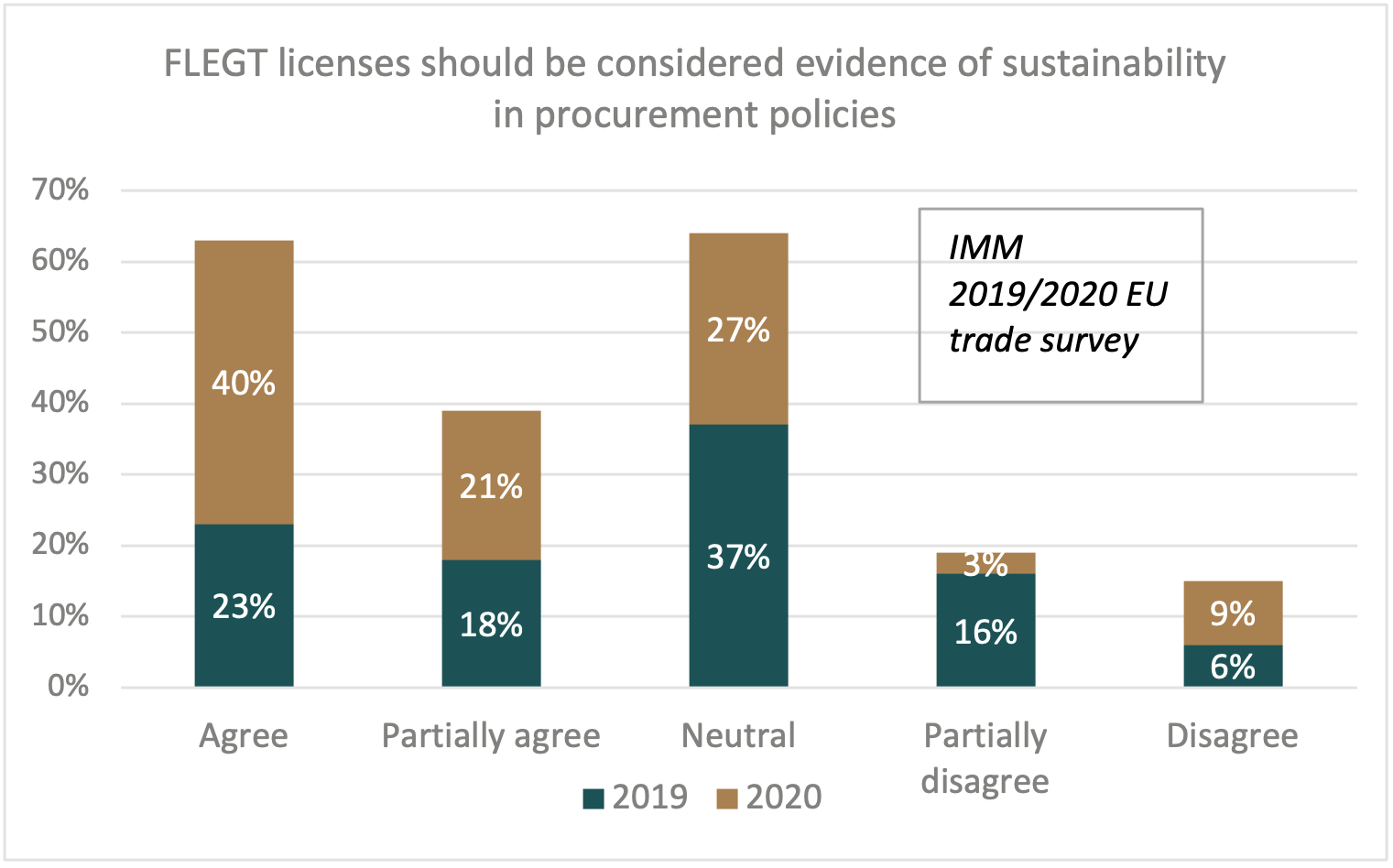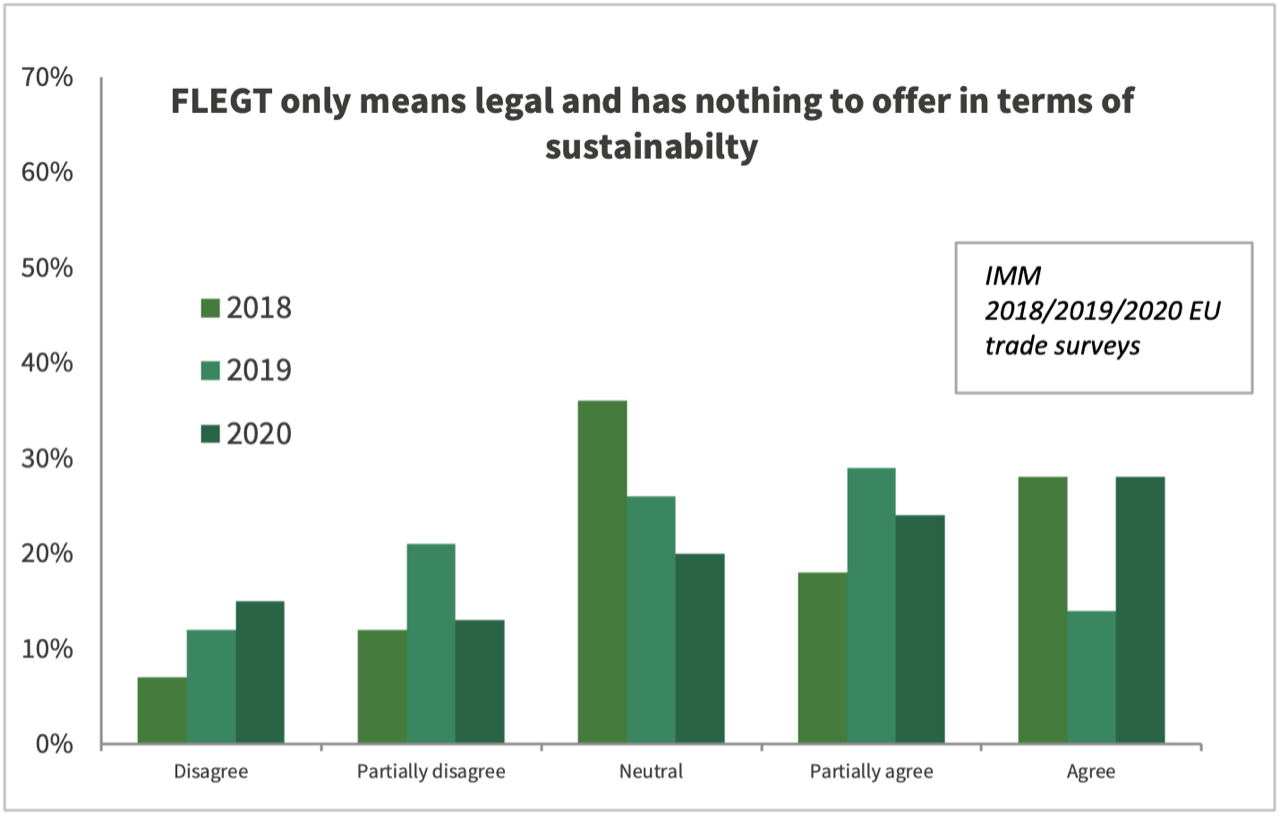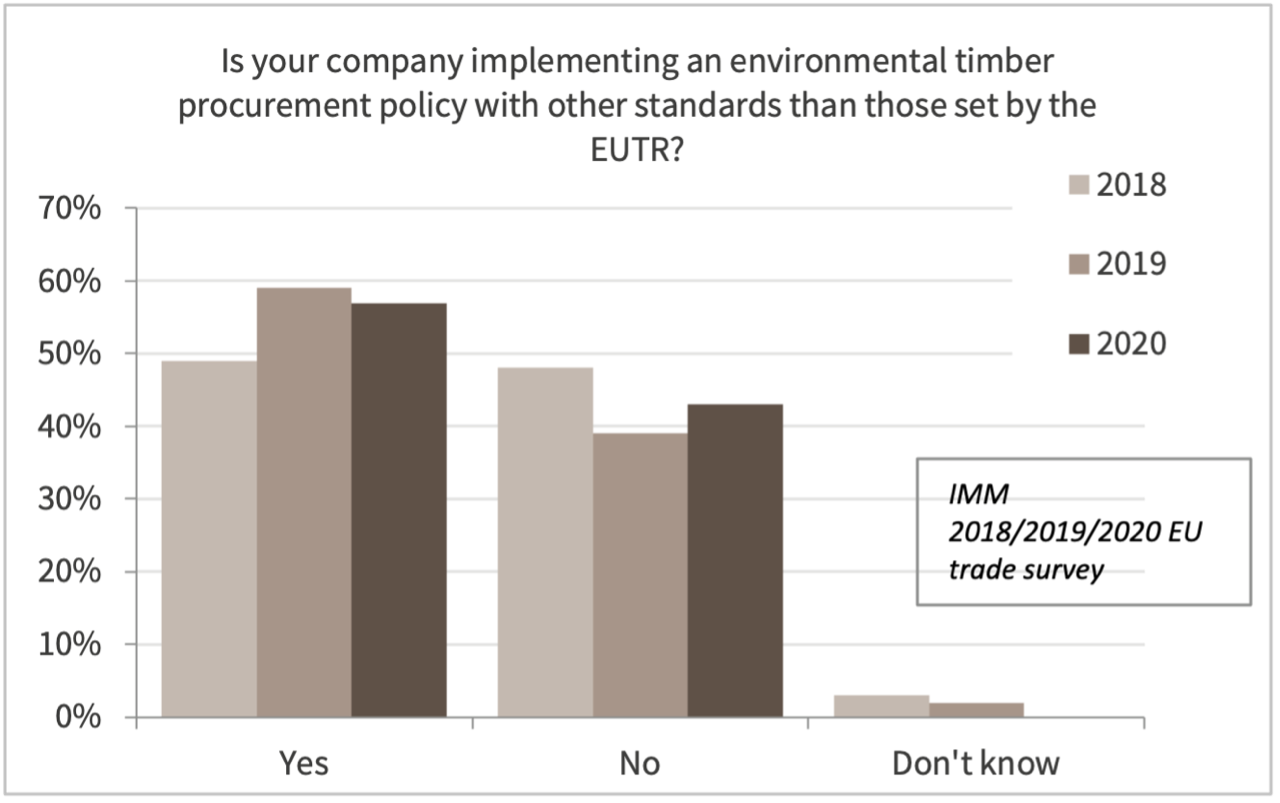A question first introduced in the annual IMM EU27+UK trade survey in 2019 found that a growing number of IMM survey respondents is of the opinion that FLEGT Licenses should be recognised as evidence of sustainability in procurement policies.
In 2019, a total of 42% of survey respondents either fully or partially agreed that Licensing should be recognised as evidence of sustainability. In 2020, this number rose sharply to 61%. Only 12% of respondents fully or partially disagreed with such a recognition in 2020, down from 22% the year before. The remaining respondents were neutral on the subject (figure 1).
Figure 1: FLEGT Licenses should be evidence of sustainability

The question of what FLEGT had to offer in terms of proof of sustainability was one of the major issues of interest that emerged from the 2017 trade survey. As a result, IMM included the statement “FLEGT means ‘just legal’ and has nothing to offer in terms of sustainability” for assessment in 2018 and subsequent surveys.
2020 survey results on this question were more mixed than in 2019, when significant progress had been registered in the perception of FLEGT as proof of sustainability over 2018. On the positive side, the number of respondents disagreeing with the statement, i.e. acknowledging the existence of sustainability aspects of FLEGT continued to grow to 15% (2018: 7%, 2019: 12%) in 2020. However, the proportion of companies fully agreeing with the statement also rose in 2020, after declining sharply in 2019.
This highlights the still significant need for consistent communication on FLEGT and what it delivers. It also emphasises the need for endorsement of the FLEGT-licensing system by the EU and EU Member States, e.g. through acceptance on equal footing with FSC and PEFC certification as evidence of legality and sustainability in public procurement policies.
Figure 2: FLEGT sustainability credentials

FLEGT-licensed timber in private sector timber procurement policies
After a significant increase by 9 percentage points from 49% in 2018 to 58% in 2019, the number of survey respondents that had timber procurement policies with other standards than those set by EUTR virtually stagnated (57%) in 2020. Most frequently mentioned as examples for higher standards were commitments to certification systems or association policies, e.g. aims towards achieving a certain proportion of “sustainable timber” purchases, with “sustainability” typically defined as FSC or PEFC certified. Other companies are having all timber-product imports monitored by third parties or have introduced internal auditing systems with specific requirements.
Where FLEGT is specifically mentioned in policies, respondents said, for example, that their official policy was to give preference to FLEGT-licensed timber over unlicensed or uncertified timber. Others said it was used to demonstrate “low risk” and compliance with EUTR. There was general acknowledgment among respondents – whether formalised in a policy or not – that FLEGT Licenses provide a green lane and no further due diligence is required for licensed timber.
Where FLEGT has no particular role, respondents frequently don’t import from Indonesia and, like in previous years, say a formal role for FLEGT licensing in policies would only be considered once Licenses are available from a wider range of sources.
Figure 3: Survey respondents’ procurement policies

